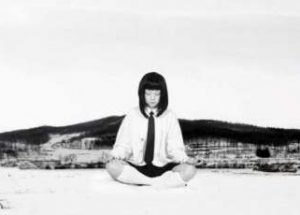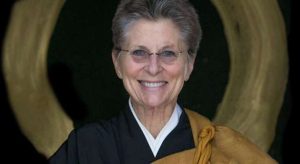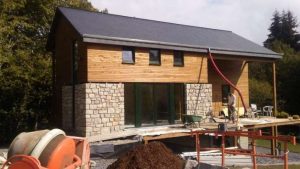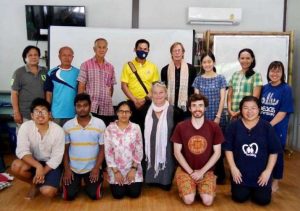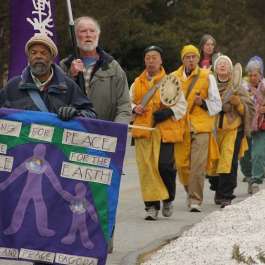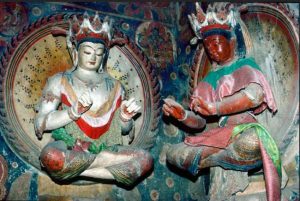
The revered Korean Dharma master and socially engaged Buddhist activist Venerable Pomnyun Sunim (법륜스님) has been conducting a wide range of community surveys and social development activities in remote areas of rural Bhutan in recent months, aiming to improve daily life for local communities and to gauge the feasibility for larger-scale sustainable development projects that could serve as models for programs to be replicated around the world. These undertakings, led by Ven. Pomnyun Sunim, are being implemented by the Buddhist humanitarian relief organization JTS Korea in cooperation with the royal family and the Royal Government of Bhutan.
Remote, landlocked, and perched in the rarified air of the eastern Himalaya, sandwiched between two political and economic heavy-hitters India and China, the Kingdom of Bhutan is the world’s last remaining Vajrayana Buddhist nation. The ancient spiritual tradition is embedded in the very consciousness and culture of this remote land, where it has flourished with an unbroken history that dates back to its introduction from Tibet by Padmasambhava, also known as Guru Rinpoche, in the eighth century.
While the Bhutan’s unique holistic approach to economic development has resulted in a healthy level of growth and low inflation over the last 20 years, life in the kingdom is not without very real challenges. Bhutan is regularly ranked among the happiest nations in the world, yet it is also one of the world’s smallest and least industrialized countries. Nevertheless, it has significant experience in managing growth in a sustainable manner, famously encapsulated in its conservative “Gross National Happiness” (GNH) approach to economic development, introduced in the late 1970s by the country’s fourth king, Jigme Singye Wangchuk.
An alternative to traditional metrics for measuring national development, such as gross national product (GNP) or gross domestic product (GDP), GNH is founded on four underlying principles or “pillars:” good governance, sustainable socio-economic development, the preservation and promotion of traditional culture, and environmental conservation.

After conducting exploratory surveys of remote communities, and their lives and livelihoods, Ven. Pomnyun Sunim and a team of volunteers and experts from JTS Korea discussed potential approaches to sustainable development in a meeting with Bhutanese Prime Minister Tshering Tobgay and members of the Royal Cabinet in the capital Thimphu.
“To begin with, it would be good to proceed with improvements to the living conditions of local residents. According to our survey, about 10 per cent of the communities either lack suitable housing or have homes that need improvement,” Ven. Pomnyun Sunim explained, sharing insights from the JTS team’s site visits. “About 10 per cent of homes that appear fine from the outside are in need of internal remodeling. Overall, it’s the kitchens that are most in need of improvement: in particular, there’s an urgent need to prevent smoke from accumulating inside as these homes use open wood fires for heating and cooking. Also, raising the height of kitchen work surfaces would go a long way toward making life more comfortable as bending over to work can cause long-term back issues for women.
“For larger families, it’s necessary to partition the living space to improve privacy for married couples and grown children. And it seems to be common among the poorest people to sleep on the floor, therefore we should provide some essentials such as mattresses and blankets. There also seems to be a lack of small household implements and agricultural tools. Of course, more specialized farming equipment could be shared communally. . . .”
Ven. Pomnyun Sunim established the humanitarian relief organization Join Together Society (JTS) as an expression of the compassion of engaged Buddhism, and based on the principle that helping others is the best way to enrich one’s own life. Charged with bringing hope, empowerment, and self-reliance to underprivileged communities in developing countries, JTS is run and manned by unpaid volunteers, who ensure that all donations benefit marginalized communities. JTS carries out relief work in countries suffering from humanitarian disasters, and has engaged in humanitarian projects in Bangladesh, Cambodia, Laos, Myanmar, the Philippines, and Sri Lanka. The relief organization has also earned Special Consultative Status to the United Nations Economic and Social Council (ECOSOC).

“Furthermore, we found a need for economic activities that can help residents generate new income streams—self-reliance is essential for sustainable development,” Ven. Pomnyun Sunim remarked. “. . . Crops that seem viable for income-generation include oranges, green tea, ginger, and coffee. Dairy and eggs also appear viable. I will bring in experts to further examine fruit cultivation and livestock farming. I thought that apples might grow well due to the high altitude, but I’ve yet to see any orchards. There’s also an issue with youth employment; young people who don’t study beyond 10th grade are unable to find work.”
Through discussions about project implementation between JTS Korea and Bhutanese state officials, it was determined that JTS Korea would donate material costs for the projects, the local authorities would cover labor costs for specialists, and the villagers should provide the general manpower and labor, allowing everyone to participate in manifesting the much-needed improvements.
“At the beginning of our survey, I thought it would be important to create irrigation channels for the farmland. However, I found that much of the land is on terraces and doesn’t need such channels. Instead, securing access to drinking water seems to be more urgent. As living conditions have gradually improved, water usage has increased and, due to climate change, there has been a severe water shortage. Ensuring sufficient drinking water is essential, and solving this issue is a major task. Water sources are 13–27 kilometers away, so it seems that more financial investment is needed in this area.
During subsequent visits to the Himalayan kingdom, Ven. Pomnyun Sunim and his team were able to review existing agricultural irrigation systems, visit cooperative enterprises in rural communities, and investigate more deeply how the quality of life for the residents could be sustainable improved.
“We’ve looked around at the current circumstances of several villages. Next we need to conduct a specific regional survey to select project target areas, and then promote pilot projects for implementation in 2024,” Ven. Pomnyun Sunim noted.
These subsequent surveys have also provided the visitors from JTS Korea with an opportunity to learn more about the living conditions of rural Bhutanese and the difficulties they face, such as access to drinking water and electricity, education for children, and their well-being and health needs—in particular the elderly.
“There’s some room for improvement in education and healthcare. The facilities of most schools and health centers themselves were decent, however healthcare for the elderly was poor . . . due to a shortage of healthcare professionals. Healthcare personnel are needed to manage the dental, eye, and ear health issues of the elderly. In education, some school facilities appeared to be somewhat inadequate, however, since there are few students, it might be better to consolidate schools . . . rather than remodeling individual schools. Children need to interact with more friends to broaden their social relationships.”
During Ven. Pomnyun Sunim’s discussions with the villagers, they shared their hopes for the future, giving voice to their needs and desires, such as for more productive dairy cattle, protecting their farms from wild animals, and more modern conveniences in their homes.
“I entered elementary school in 1960,” Ven. Pomnyun Sunim related during his community meetings. “At that time, South Korea had a per capita GDP of US$100. Sixty-five years have since passed and per capital GDP is now US$35,000—a 350-fold increase. You might think that South Korea doesn’t have any problems, but it has an extremely high rate of suicides and young people refuse to marry. Do you wish to walk the same path?
“If your son travels to Thimphu or Australia to earn money, he may help you to build a big house here. But you may never see him again. I don’t think that’s a good thing. Is it a good life to be constantly struggling to have more? I’m here to tell you that money isn’t everything in life.”
In coming weeks and months, Ven. Pomnyun Sunim and JTS Korea will continue their development work in Bhutan, building on their progress to date, further improving living conditions for remote communities, as a precursor to manifesting a model for sustainable social and economic development that could serve as a practical example for the world at large.
Ven. Pomnyun Sunim is a widely revered Korean Dharma teacher, author, and social activist. He has founded numerous organizations, initiatives, and projects across the world, among them: JTS Korea, an international humanitarian relief organization working to eradicate poverty and hunger; Jungto Society, a volunteer-based community founded on the Buddha’s teachings and dedicated to addressing modern social issues that lead to suffering; Ecobuddha, an organization focused on environmental ethics and sustainable living based on the teachings of the Buddha; and Good Friends, which promotes reconciliation and cooperation between the North and South Korea, and provides humanitarian aid to North Koreans. Ven. Pomnyun Sunim also works closely with the International Network of Engaged Buddhists (INEB).
In October 2020, the Niwano Peace Foundation in Japan presented the 37th Niwano Peace Prize to Ven. Pomnyun Sunim in recognition of his international humanitarian work, intensive environmental and social activism, and his tireless efforts to build trust and goodwill between communities of different faiths and cultures, toward the goal of world peace.*
* Buddhist Monk Ven. Pomnyun Sunim Awarded the 37th Niwano Peace Prize (BDG)
See more
Pomnyun
Jungto Society
JTS Korea
JTS America
Jungto Dharma School
International Network of Engaged Buddhists (INEB)
Related news reports from BDG
Special Report: Ven. Pomnyun Sunim Leads 10,000 People in Great Dharma Assembly for Peace on the Korean Peninsula
Online Dharma: Jungto Society Opens Registration for Summer Intake of Jungto Dharma School with Ven. Pomnyun Sunim
Engaged Buddhism: Ven. Pomnyun Sunim and JTS Korea Support Buddhist Nunneries in Bhutan
Ven. Pomnyun Sunim Joins Religious Leaders in Interfaith Peace Declaration on 70th Anniversary of Armistice on the Korean Peninsula
Pathways to Peace: Ven. Pomnyun Sunim Delivers Talk on Rising Tensions on the Korean Peninsula
Related features from BDG
Footsteps of the Buddha: Ven. Pomnyun Sunim and the Transformative Power of Engaged Buddhism
Sujata Academy: The Power of Hope and Compassion in India
Related columns from BDG
Dharma Q+A With Ven. Pomnyun Sunim
Related videos from BDG
Dharma Q+A with Ven. Pomnyun Sunim
Wisdom Notes from Ven. Pomnyun Sunim









